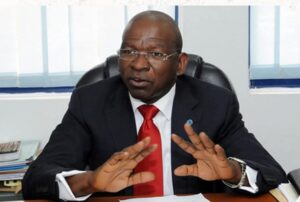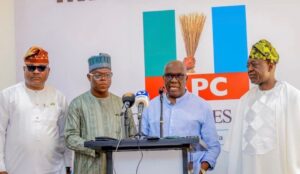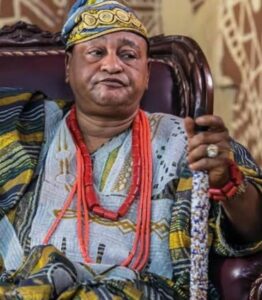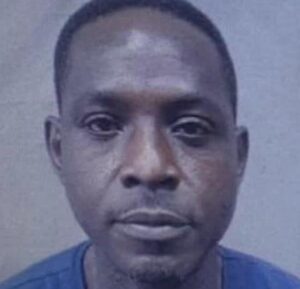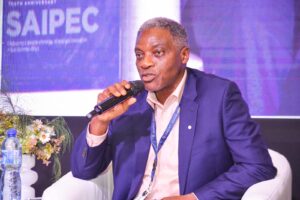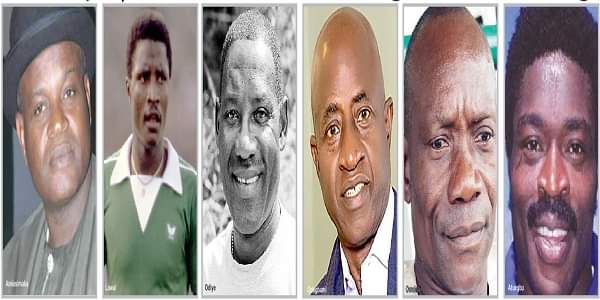
Forty years after the historic AFCON victory on March 22, 1980, Green Eagles conquering heroes looked back to share their memories with TAIWO ALIMI.
He was then 23 and Godwin Odiye was a wreck hours before the 1980 Africa Nations Cup (AFCON) Final between Nigeria and Algeria at the imposing Lagos National Stadium. Green Eagles defeated Algeria 3-0 with two goals from Segun Odegbami and one from Muda Lawal, to win their first ever African Cup of Nations. Nigeria won two more in 1994 and 2013.
Odiye was one of Nigeria’s best central defenders before Brazilian coach, Otto Gloria converted him to a midfielder and he had just been informed that he would be playing the same role in the epic final.
“I remember walking around the camp, and the training pitch and visualizing my movements on the field during training sessions,” Odiye, now living in the USA told The Nation. “At the same time I was visualizing the offensive and defensive movements of Muda Lawal, Alloysius Atuegbu, Haruna Ilerika, and Sam Garba. I wanted to be at my best in the final.”
Quiet and focused, his colleagues were not aware of the personal ghost he was battling and whose redemption rest squarely on winning the AFCON trophy. “The risk I took was ignoring my school coach, and the San Francisco University. I risked losing my scholarship. But I ignored all that, and I left to represent Nigeria. What happens if Nigeria doesn’t win? I lose everything.”
It was a moment that nothing must go wrong in the epic final on March 22, 1980.
Odiye has had two shattered dreams in 1976 and 1978 AFCONs.
He his first AFCON in Ethiopia ’76 and second in Ghana ’78, under Yugoslavian coach Tiko Jelisavcic a.k.a ‘Father Tiko.’ Both times he came back with bronze medals.
“I wanted nothing more than to win on home soil by lifting the trophy.”
This is not forgetting the ‘own goal’ saga that was hanging on his head during the 1978 World Cup qualifier when a head flick by Odiye ended Nigeria’s quest for the World Cup. The lone goal scored at the Lagos National Stadium gave Tunisia the ticket to the 1978 World Cup in Argentina.
Going into the historic final, the young Odiye sure had a burden on his mind.
40 years on, Odiye, who turns 63 on the 17th of April, is alive and kicking in California. He looked back to admit the AFCON ’80 trophy was worth the risk and trouble.
“I made the starting line-up against Algeria. I got hurt by pulling a groin muscle and got subbed 15 minutes in the first half after being one goal up. In the end we won and that was all that mattered,” explained Odiye.
Meanwhile, defender Kadiri Ikhana, described by Odegbami, as ‘very wise, with a sharp mind…and one of the most respected and most successful coaches in domestic football in Nigeria’ was also in the middle of things on the fated evening.
‘Wow’ was all he could muster when asked to describe the moment before and after the victory.
“It’s obviously 40 years like 40 days. Honestly, I think one should be proud that one belongs to that historic moment. It is a moment that one cannot describe so much. As young men after winning the reaction was one of happiness, feeling good and time to open the wines and join our friends to celebrate. We came back to the camp and for the rest of the evening enjoyed the big moment. Personally, I did not sleep till 2 AM in the morning.”
Odiye said: “It was a memorable day for me and it still is. I get emotional whenever I read about or people talk about it.”
Dazzling winger Felix Owolabi called it the best moment of his life. “It was a moment one can never forget. The team spent almost three hours before they could get to their camp because hundreds of fans escorted us from stadium to the camp in Festac Town.”
Fleet-footed winger Adokiye Amiesimaka said of the magical moment in a recent interview: “I don’t think we have ever had such experience before, where there was unanimity, expression of joy in unison. That was one moment that every Nigerian was happy to be a Nigerian. It is a moment one can never forget, a moment one always cherishes.”
THE FEARS
However, what many do not know is the unconscious fear that enveloped the brains of the young heroes days before the magical instant when Nigeria’s flag was hoisted ahead of eight others and the magnificent CAF AFCON trophy handed over to the Green Eagles captain Christian Chukwu.
Akin to Odiye, teammates Ikhana, Owolabi, Amiesimaka, Chukwu, Odegbami and other members of the winning team harboured hidden fears.
Parading a mix of experienced and young players, Otto Gloria had to work on the psyche of the players who have to bear the burden of twice coming close to the Nations Cup honours in 1976 and 1978 and missing the World Cup Final by the ‘flick of a head’ in 1978. Eagles were third place winners on both occasions in Ghana and Ethiopia respectively.
But for Chukwu (29), Emmanuel Okala (29) Odegbami (27) and Ikhana (28), the average age of the team was 22. Sixteen year old bundle of skill Henry Nwosu was to taste his baptism of fire that year as with John Orlando (19) and Sylvanus Okpala (18).
Khan’s biggest fear was how not to disappoint their faithful fans.
“Few days to the final we were moved into the Lagos National Stadium camp and by 7 AM, the stadium was already filled up with people who wanted to get entrance into the main bowl. Multitude of people, thousands upon thousands of people… Before 10AM, the stadium was already filled up. I thought to myself ‘we cannot afford to let these people down’
Yet they were up against an Algeria team, whom the world and local press had handed the trophy. They had Captain Ali Fergani, experienced Lakhdar Belloumi and scorer Rabar Madjer.
According to Adokiye the local media made the job more difficult for them. “The press descended on us, saying we were not good, Chukwu was too old… we had no chance of winning the tournament in 1980 and Algeria were tipped as favourites. So from the press point of view, we were written off, we had no chance but the average Nigerian football fan so believed in the team and that was very inspiring.”
Owolabi said the fans zeal and belief exorcised the ghost of fear from them.
“All through the championship we were never paid a kobo until that final, but we were not bothered. But one thing that fascinated me most was that each time we were going to stadium from our camp at Festac Town, crowd will line up by the road sides to cheer us; market women and people would line up to sing and clap for us till we get to the National Stadium Surulere. It was like that every day and when we get to the main-bowl the kind of crowd and welcome we got was more than what we could chew. It was amazing and enough message to us that Nigeria must deliver and if Nigeria must come out top, it is we the players that can make it happen. It was enough motivation for us to do everything possible to win the match.”
Victory was indeed sweet. It changed their lives and that of many Nigerians, especially the youth.
The country experienced an explosion of teenage footballers which triggered the exploit of many players into the Europe and the U.S. Ex-internationals Tajudeen Disu, Tajudeen Ajide and Ganiyu Ajide were touched by the magic. “I was a teenager in Surulere and that victory affected many of us in a positive way. These guys became our heroes and all youngsters of Surulere wanted to be like them. We focused on the game and achieved our dreams by playing for the national teams and University abroad,” explains Disu.
Ajide refers to Ikhana and his teammates as ‘seniors and heroes of the game that inspired him to play football home and abroad. “These are people we look up to when I was growing up. I wanted to be like them. Whatever I have achieved today was driven by these people,’ added incumbent chairman of Surulere Local government.
Fast-track 40 years forward, the 1980 class of Green Eagles can only look back with mix emotions. For some, grace for making it thus far, for others challenging times and sadness of forgotten heroes and yet for some, anger for abandoning them at critical point of need.
CHALLENGES
Ikhana now 67 is not happy that they have been abandoned by the country and Nigeria Football federation (NFF).
“Forty years has passed since that victory and I think the government has tried in some ways. After winning the trophy, we were given national award, which is the greatest thing that has ever happened to me. Two, we were given houses, cars and monetary reward. Many companies gifted us their products. But, I think what is left out is that the ex-internationals should be looked after. Especially after we retire and getting old; when one cannot move like before. I think the Nigeria Football Federation (NFF) especially should be able to come in and help the ex-internationals. That is what I think.”
Odiye said he opted for the U.S because he is not inspired by the Nigeria FA. “I’m living a quiet life in the U.S. but still involved with soccer. I teach physical education and coach soccer at a private high school. I am having fun with it. There are times I thought about coaching the Super Eagles but did not follow up with it. In fact, I was more interested in the junior Eagles than the senior Eagles. I like to start low as an assistant and then move up. The treatment of former Eagles coach, Stephen Keshi (RIP) made me close the chapter of coaching the national team. Keshi was Nigeria’s answer at the time, but he was never appreciated.”
ANGER
Six members of the squad are no more. They are Muda Lawal, Best Ogedegbe, Okey Isima, Tunde Bamidele, and Alloysius Atuegbu and Martin Eyo.
Muda Lawal’s daughter Taiwo Lawal said she missed his father who died on July 6, 1991. “I don’t think he was appreciated in death. In other clime we know how a country forever keeps alive the memory of a hero. We forget our heroes so soon and that is why the younger players only play for what they could get now.”
But for Isima who was among the first flights abroad, all others worked tirelessly for fatherland without enjoying the fruit of their labour.
Patriotic captain Chukwu suffered near similar fate. He stayed home to see to the growth of the game both as club and national teams’ coach. On April 18, 2008, he came into the open to demand for his backlog of salaries from the Nigeria FA. Chukwu was in charge of the Super Eagles from 2002 to 2005. He claimed he is owed $US128,000 about N25million since 2006 when his contract officially ended.
Chukwu suffered badly and last year at the age of 68, he came down with prostate cancer which paralyzed his leg and it took the timely intervention of Billionaire Femi Otedola to offset his medical bill of over $50,000 abroad.
It was the same for Ikhana whose coaching career traversed nine local and two national teams. He led Enyimba to winning Nigeria’s first CAF Champions League trophy in 2003 and was awarded CAF’s Coach of the year.
Ikhana suffered hip dislocation in October 2019, and had to undergo three surgeries. But for foreign based players, individuals and a local hospital, Ikhana would still be bedridden. NFF later donated N1m to help him.
“Ex-internationals deserve a welfare structure because having played and remained in the game as a coach it is difficult for you to go into other things when you are old. You don’t know any other thing apart from football. When you cannot coach again, and you have played for the country and contributed your quota to bringing up the new generation of footballers, I believe that the NFF must have in place a welfare system that will take care of old players who have made the country proud. Is that too much to ask?” asked Ikhana.






